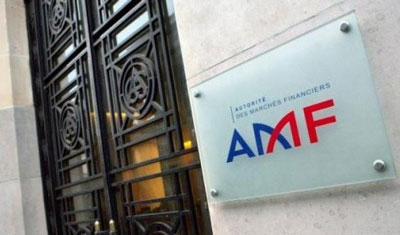
Autorité des marchés financiers (AMF), the independent regulatory body governing France’s stock market, issued two statements today, one on initial coin offerings (ICOs) and another on the prospect of bitcoin derivatives. Both point to more oversight to come for crypto in France, including everything from formal authorizations to a ban on advertisements.
Also read: How To Regain Control From Nanny Zuck
France Cracks Down on Bitcoin Derivatives
AMF, France’s markets regulator, insists bitcoin derivatives are subject to the European Union’s Markets in Financial Instruments Directive (MiFID II) which trigger all manner of new rules and authorizations. In its 22 February published missive, “The AMF considers that the offer of cryptocurrency derivatives requires authorisation and that it is prohibited to advertise such offer via electronic means,” the agency argues. “The AMF has reached the conclusion that platforms which offer these products must abide by the authorisation and business conduct rules, and that these products must not be advertised via electronic means.”
During its analysis the AMF determined “the legal qualification of the notion of “derivative” in the context of cryptocurrency derivatives and […] to consider whether a cryptocurrency could be legally regarded as an eligible underlying. The notion of “derivative” is not defined in EU legislation per se.”

The AMF describes growth in crypto exchanges as a boom, offering “binary options, CFDs or Forex contracts with an end-of-day maturity (rolling spot forex), where the underlying is a cryptocurrency. Such contracts allow investors to bet on a cryptocurrency’s rise or fall, without holding the underlying.”
As a result, the legal status of crypto is almost irrelevant because the AMF determined “a cash-settled cryptocurrency contract may qualify as a derivative.” Furthermore, the agency found the European Market Infrastructure Regulation (EMIR) will be invoked, along with MiFID II, setting into motion rules for over the counter (OTC) derivatives and their online exchanges such as complying with “authorisation, conduct of business rules, and the EMIR trade reporting obligation to a trade repository. Above all, these products are subject to the provisions of the Sapin 2 law, and notably the ban of advertisements for certain financial contracts.”
AMF Also Takes a Hard Look at ICOs
The AMF publishes the summary of responses to the public consultation on initial coin offerings (ICO) was also revealed the same day, summarizing 82 comments from the French public concerning ICOs and their regulatory fate.
According to the agency, “a large majority of respondents expressed support for setting up an appropriate legal framework for this new type of fundraising.” Respondents were “digital economy players, individuals, finance professionals, market infrastructures, academics and law firms.”

The AMF offered three options for consideration going forward: “Promote a best practice guide without changing existing legislation (option 1); Extend the scope of existing texts to treat ICOs as public offerings of securities (option 2); Propose new legislation adapted to ICOs (option 3).” Of those, option 3 received 66% approval.
“Respondents unanimously consider that an information document is necessary to inform buyers of tokens,” and should include project specifics, rights, distribution scheme, along with identifying the project’s heads and team. “Finally, the vast majority of respondents favour the establishment of rules making it possible to ensure the escrow of funds raised, and the setting up of a mechanism to prevent money laundering and terrorist financing,” the release concluded.
In response to the respondents, AMF officials have vowed to “continue work” on the prospect of regulating ICOs.
Is France overreacting? Let us know in the comments section.
Images courtesy of Pixabay, AMF.
Need to calculate your bitcoin holdings? Check our tools section.
